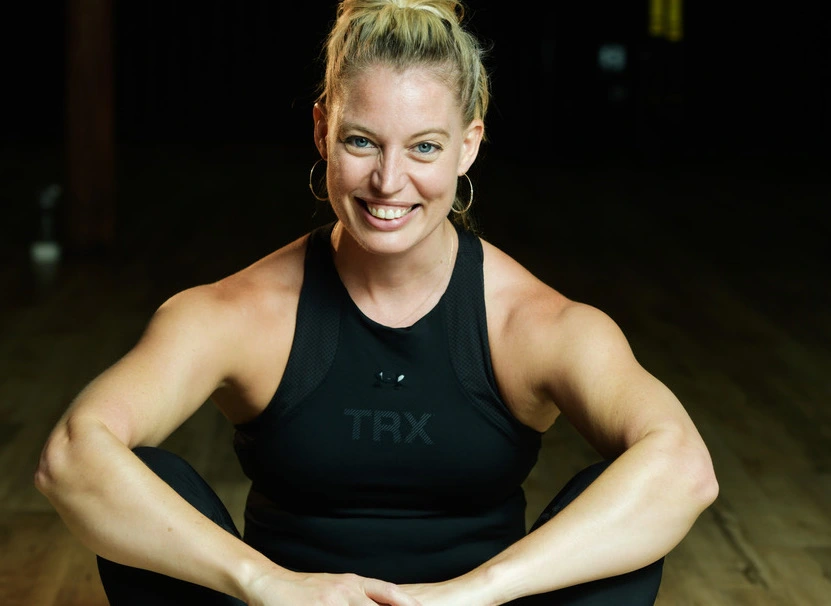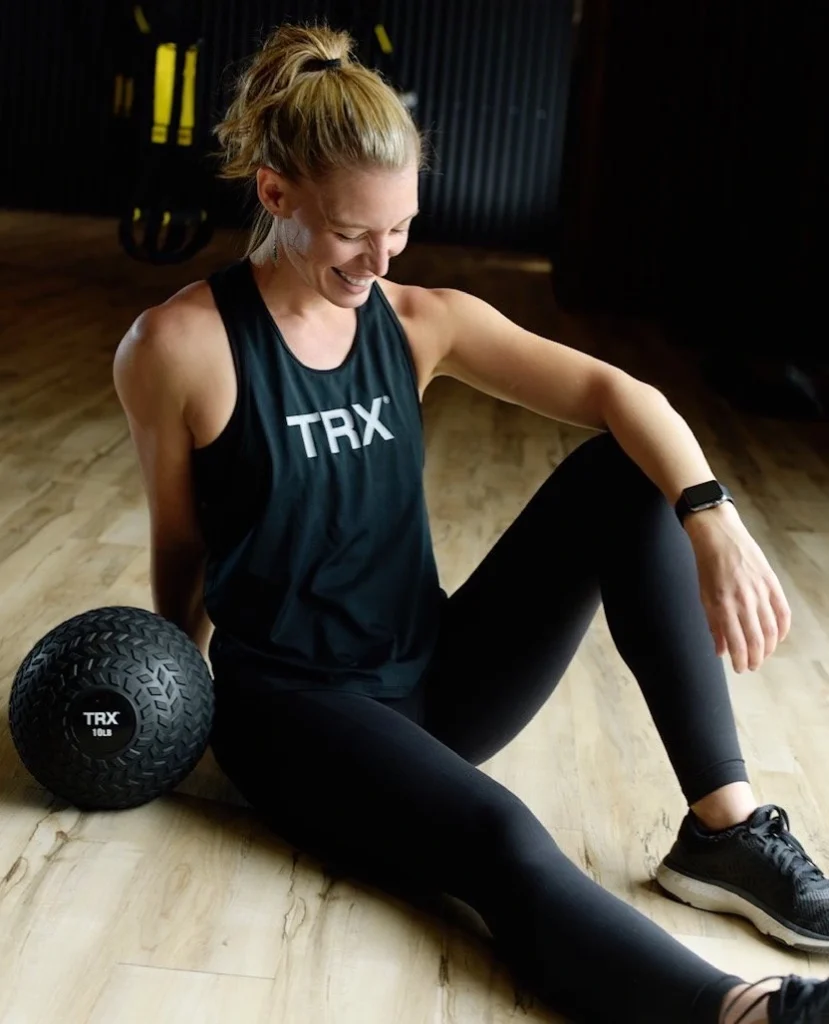Trainer Talks: Ami McMullen on the Power of Small Changes

Ami McMullen, a former dancer turned trainer, crafts personalized strategies to help clients overcome obstacles and achieve their goals
Personal trainer Ami McMullen, owner of Studio Hustle in Louisville, has been transforming lives since 2005. Drawing on her own experiences with injury and setbacks, McMullen has developed an approach that emphasizes small, achievable goals and seamless integration into daily life.
Inspired by her performing arts background and her journey in overcoming her own injuries, McMullen understands the challenges her clients face. She breaks down big objectives into manageable steps, helping people build confidence and achieve lasting change.
From helping a client regain his passion for cooking to guiding another towards better hydration habits, McMullen’s success showcases the power of her philosophy, which hinges on empathy, expertise and encouragement.
Athletech News spoke with McMullen about how she helps her clients change, one small victory at a time.
This conversation has been lightly edited for clarity and length.
Athletech News: Why did you become a personal trainer and how your career has evolved over the years?
Ami McMullen: My entry into fitness was somewhat accidental, but it grew into a passion. It’s been a way to maintain my health and help others.
One of my teachers, who was a Juilliard grad and taught group fitness on the side, introduced us to conditioning classes to complement our dance training. It was my first taste of intense cardio and fitness outside ballet, and I loved the physical challenge and athleticism of it.
I pursued dance at a conservatory but had to take a break due to injuries. That’s when I switched to studying fitness, thinking it was just for a semester. But then I injured my ankle, and it turned out I needed more time off, which led me to dive into exercise and sports science. I started to see fitness as a viable career, one that allowed me to be active without the relentless strain dance put on my body.

ATN: Have you ever had a physical setback, and did it help you understand the struggles your clients might face?
AM: A couple of years ago, I was playing in an annual kickball game with friends and I tore my quad tendon and some cartilage in my left knee during a pile-up. Initially, I thought I had just hyperextended my knee, but it turned out to be much more severe. The injury sidelined me for 2 years. I couldn’t do any lower body exercises, which led to a 25-pound weight gain. I couldn’t even walk upstairs without pain for a year.
Recovery was slow, and it was the longest I’ve been out of action. I’ve had other injuries, but nothing as debilitating. It took me about a year and a half just to get back to doing a full bodyweight squat and lunge.
The recovery has been very nonlinear. Sometimes I feel great and push myself, only to end up having to take a break for weeks because of swelling and instability. It’s getting better, but the recovery process highlighted just how challenging it can be to maintain physical health. It’s made me even more empathetic towards my clients’ challenges.
ATN: You emphasize small, manageable changes in your approach. Can you share a success story where this philosophy made a difference in someone’s life?
AM: One method I use comes from my babysitting days. When kids see a big mess, they’re overwhelmed, so I’d set a timer for just 3 minutes for them to clean as much as they can. After that, they could go back to playing. I’ve applied this same concept with my clients, setting a 5-minute timer for walking down the street and back or tackling a small task that’s been putting them off.
One client was overwhelmed by the chaos in his kitchen, which made him reluctant to cook. We started setting a 5-minute timer after meals to clear the kitchen table. It took a few weeks, but eventually, he managed to clear the clutter, which led him back to cooking regularly. This small step helped him regain his rhythm in the kitchen.
Another client used to drink a 12-pack of soda a day and barely any water. When he first came in for a workout, he was gasping for breath within minutes. The thought of reducing his soda intake overwhelmed him. So, instead, we focused on adding one glass of water before each soda. Over time, this small change helped him improve his hydration without feeling deprived.
Small steps can lead to significant changes, particularly when the idea of a big change seems too daunting. It’s about building confidence and helping clients see that they can indeed manage and improve their own health, one small step at a time.

ATN: How has your background in ballet influenced your approach to fitness with your clients?
AM: Growing up in ballet, I was lucky to have supportive teachers, which isn’t always the case. When I transitioned to fitness, I found it to be more motivating and less about perfection, which really shapes how I interact with my clients.
Most of my clients aren’t aiming to become professional athletes. They are looking for practical fitness solutions that fit into their lives without becoming a source of misery. They assume fitness is going to be too hard, and it doesn’t have to be.
I think it’s important to be realistic about what clients want from their fitness journey. It’s not about transforming them into someone obsessed with fitness, but helping them achieve a healthier lifestyle that suits them. For most, this means improving body composition or health without rigorous, overwhelming routines. Understanding the minimum effective dose of exercise helps in this, as most people benefit from moderate, consistent activity rather than extreme fitness regimens.



